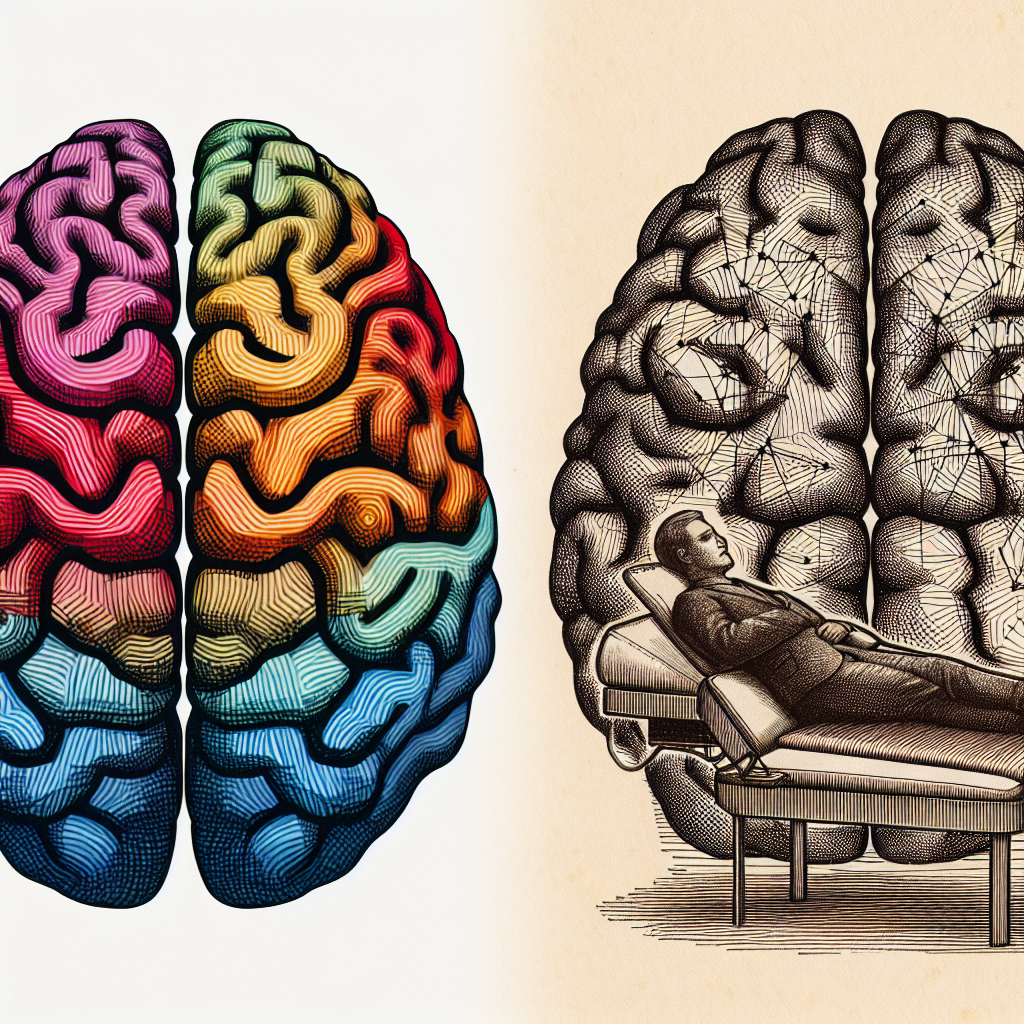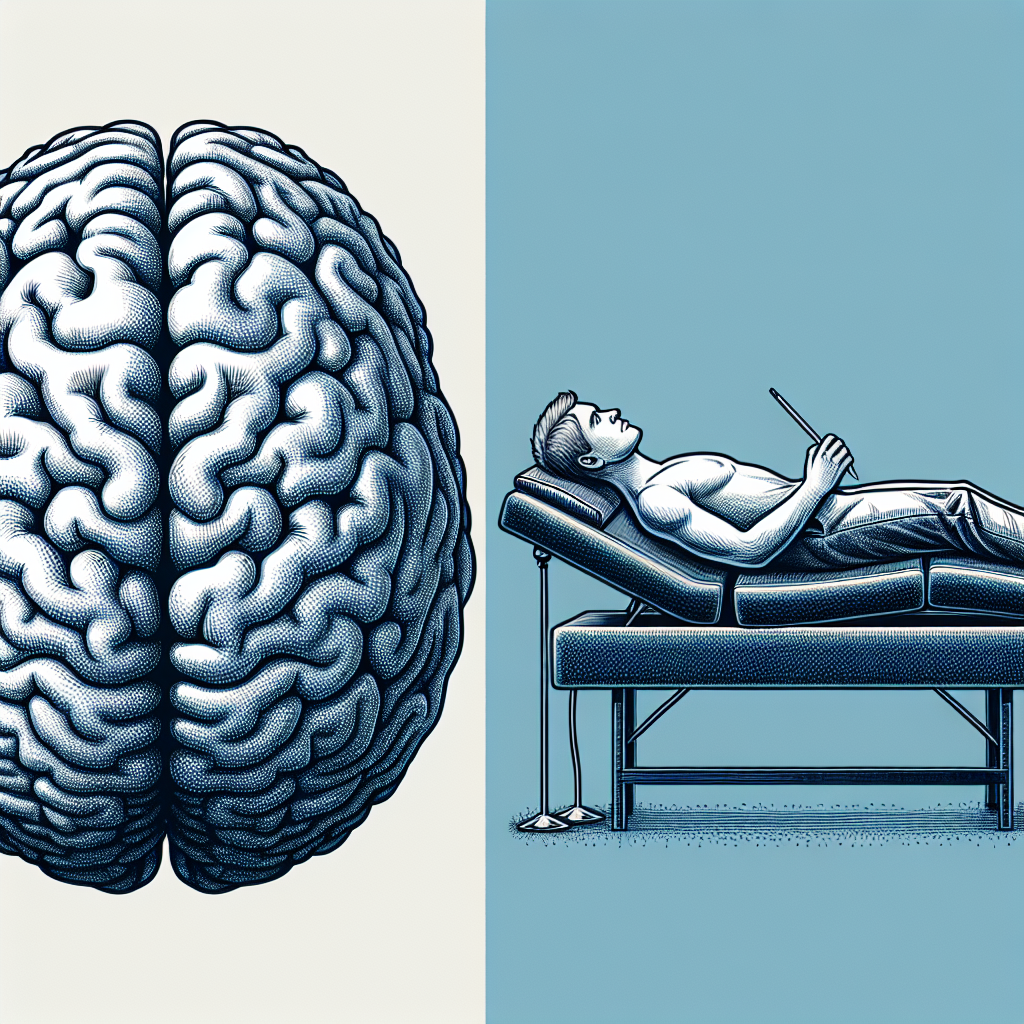How Does Cognitive Rehabilitation Therapy Differ From Traditional Therapy Approaches?
Unlocking mysteries of the human mind is no easy feat, and understanding the distinction between Cognitive Rehabilitation Therapy and traditional therapy approaches opens doors to intriguing complexities. In the symphony of neurotransmitters that compose your thoughts, emotions and actions, these therapies play different roles and bear contrasting impacts. This article sails you, mighty explorer, through the labyrinth of neurons, demystifying the varied physiologies that underlie the two therapeutic approaches. It navigates the nuances of these interventions to allow a seamless comprehension of their distinct functions and benefits. So, brace yourself and let’s embark on this enlightening journey through the brain’s intricate pathways, shaping the realm of therapeutic science.

Understanding Cognitive Rehabilitation Therapy
As you set out to unravel the maze of therapeutic techniques, your journey begins with a comprehension of Cognitive Rehabilitation Therapy (CRT).
Definition of Cognitive Rehabilitation Therapy
Cognitive Rehabilitation Therapy, an intriguing world for a layman, is a way for you to retrain or repair cognitive functions that have been impaired or lost. Damage could be from an injury or disease that leaves your brain struggling to process information accurately and rapidly. This therapy provides a platform to improve cognitive abilities and mitigate impacts of cognitive impairment.
The core principles of Cognitive Rehabilitation Therapy
Like a finely tuned orchestra, CRT operates through carefully constructed principles. The foundational principle is dependent on neuroplasticity – the brain’s inherent ability to adapt and change throughout your life. Additionally, it asserts the significance of people’s unique experiences and aims to achieve goal-oriented outcomes.
Applications and scope of Cognitive Rehabilitation Therapy
You can envisage CRT as a powerful tool employed over an expansive landscape. It is applicable for diverse conditions like traumatic brain injury, stroke, Alzheimer’s disease, and even mental health conditions. The focal point remains enabling you to regain cognitive functionalities, be it memory, concentration, or problem-solving skills.
Exploring Traditional Therapy Approaches
As fascinating as Cognitive Rehabilitation Therapy may be, there is also significance in understanding traditional therapy.
Definition of Traditional Therapies
Let’s imagine traditional therapies as the trusted old friends of medicine. They are broadly characterized by medical, psychological, and physiological techniques designed to assist you in overcoming pathologies, alleviate symptoms and improve general health.
Various forms of Traditional Therapies
Traditional therapies are akin to an anthology, encompassing a broad spectrum. From psychotherapy and naturopathy to physiotherapy and occupational therapy, each offers a different canvas of treatment.
What Traditional Therapies primarily focus on
Your journey in the realm of traditional therapy is primarily centered on managing symptoms. Therapists there aid you in coping with life changes, imparting you with the skills to constructively confront physical or emotional challenges.
Differences in Treatment Goals
A comparison of CRT and traditional therapy would akin to juxtaposing two masterpieces, each bearing distinct treatment aims.
Treatment aims of Cognitive Rehabilitation Therapy
CRT, the striving composer of your cognitive melody, targets to fortify cognition and enhance functionality. It aspires to empower you with ways to cope or compensate for cognitive deficiencies you may face.
Treatment aims of Traditional Therapies
The stalwart that traditional therapy is, it zeroes in on reducing symptoms, promoting optimal psychological and physiological functioning and improving your general well-being.
How do these aims differ
While the two appear similar, contrasting differences emerge in focus. CRT seeks to mend or rewire your cognitive defects, while traditional therapies aim more for overall symptom management and emotional well-being.

Differences in Therapeutic Techniques
A further differentiation is evident in their employed techniques.
Techniques used in Cognitive Rehabilitation Therapy
CRT is the artist meticulously sculpting your cognitive functioning via techniques like brain exercises, assistive technology, memory aids, psychoeducation or cognitive retraining.
Techniques used in Traditional Therapies
Picture traditional therapies as the artisan using tools including counseling, behavioral modifications, biofeedback, and medications to achieve its therapeutic objectives.
Comparison of Techniques
The contrast is visible- CRT primarily focuses on cognitive function enhancement while traditional therapies major on symptom management and overall well-being.
Differences in Treatment Duration and Intensity
A comparison may also be drawn considering treatment duration and therapy intensity.
Duration of Cognitive Rehabilitation Therapy treatments
Like a budding painter patiently crafting his masterpiece, CRT typically needs an extended time frame, with frequency and duration being individualized.
Intensity of Cognitive Rehabilitation Therapy treatments
CRT, comparing to exercise for the brain, requires consistent engagement and practice to promote cognitive repair, hence intensity is often high.
Duration and Intensity in Traditional Therapies
Traditional Therapies, on the other hand, might elicit quicker responses, with the nature and intensity of treatments varying widely depending on your distinct needs.
Contrasting the differences
From a vantage point, stark differences are perceptible. CRT involves long, intense engagement, while Traditional Therapy duration and intensity are primarily tailored to your symptomatic needs.
Patient Profiles and Suitability
Let’s illuminate the ideal candidates for each therapy type.
Who is a candidate for Cognitive Rehabilitation Therapy
CRT beacons as a hopeful ray for those enduring cognitive impairment, particularly arising from brain injuries or neurological conditions.
Who is a candidate for Traditional Therapies
Traditional therapies extend their warm embrace to a broader spectrum, encompassing individuals grappling with a myriad of physical, emotional or cognitive woes.
Differences in patient type and condition appropriateness
CRT opens its doors mainly to those contending cognitive deficits, while Traditional Therapies cater to a larger demographic with diverse health issues.
Roles of the Therapist in Both Therapy Types
The therapist, the captain of your therapeutic journey, carries distinct roles in each therapy type.
Role of a therapist in Cognitive Rehabilitation Therapy
In CRT, your therapist dons the hat of a cognitive trainer, employing specialized techniques to bolster your cognitive abilities and reduce clinical impact.
Role of a therapist in Traditional Therapies
In Traditional Therapies, therapists engage as counselors, educators, or mentors – guiding you to better handle your symptoms and promote overall wellness.
How these roles differ
While therapists in CRT serve as cognitive trainers, those in Traditional Therapies adopt more versatile roles.
Evidence Base and Effectiveness
A discussion on therapy types wouldn’t be complete without debating their effectiveness.
Evidence supporting Cognitive Rehabilitation Therapy
CRT stands tall with a growing body of research substantiating its effectiveness for patients with cognitive impairment particularly those with traumatic brain injury and stroke.
Effectiveness of Cognitive Rehabilitation Therapy
The effectiveness of CRT, while promising, varies depending on individual circumstances, the severity of impairment and consistency of treatment.
Evidence supporting Traditional Therapies
Traditional therapies glow with the credibility of extensive research and clinical experience advocating their therapeutic benefits for a myriad of health issues.
Effectiveness of Traditional Therapies
Traditional therapies’ effectiveness is well-documented across several health areas, drifting from physical conditions to emotional wellness to cognitive health.
Comparative analysis of effectiveness and evidences
Both CRT and traditional therapies hold their ground with an arsenal of evidence and effectiveness. However, their effectiveness and applicability vastly differ given the nature and scope of conditions they cater to.
Criticisms and Limitations
Despite their benefits, each therapy type has its critics and constraints too.
Criticisms of Cognitive Rehabilitation Therapy
CRT often receives criticism for being too specialized and niche, with critics arguing not all cognitive conditions may benefit from this approach.
Limitations of Cognitive Rehabilitation Therapy
Limitations arise from CRT’s time intensity and the need for specialized therapists, making it less accessible and posing feasibility challenges.
Criticisms of Traditional Therapies
Traditional therapies may get flak for not sufficiently addressing the underlying cognitive deficits, focusing primarily on symptomatic relief.
Limitations of Traditional Therapies
Limitations of traditional therapy may arise from potential side effects, the risk of dependency, or its one-size-fits-all methodology not suiting everyone’s unique needs.
Interplay between Cognitive Rehabilitation and Traditional Therapies
Can the chameleon of CRT and the old sage of traditional therapy work hand in hand? The answer lies in their interplay.
Instances where Cognitive Rehabilitation and Traditional therapies can work together
Imagine a situation where a person suffers a traumatic brain injury accompanied by post-traumatic stress disorder (PTSD). Here, CRT could step in to address cognitive deficits, while traditional therapy can concurrently manage PTSD symptoms.
How Cognitive Rehabilitation Therapy can complement Traditional Therapies
CRT could potentially complement traditional therapies by addressing underlying cognitive deficits, leading to better symptom management and overall improvement in quality of life.
Challenges in integrating the both therapy types
Integration may pose challenges due to varying therapeutic principles and therapeutic targets. Nevertheless, when harmoniously blended, they can open the door to a more comprehensive and holistic treatment realm.

